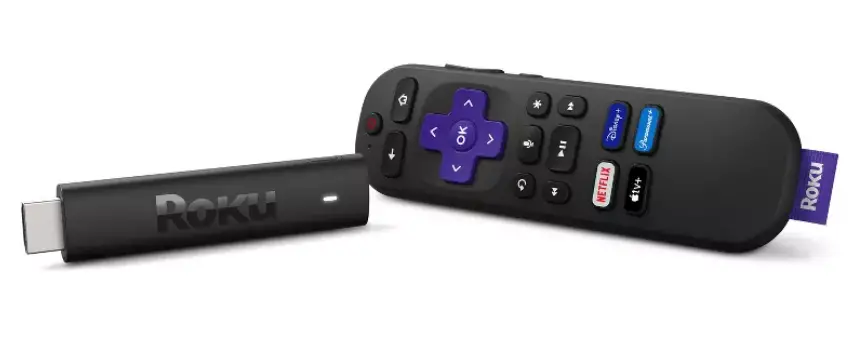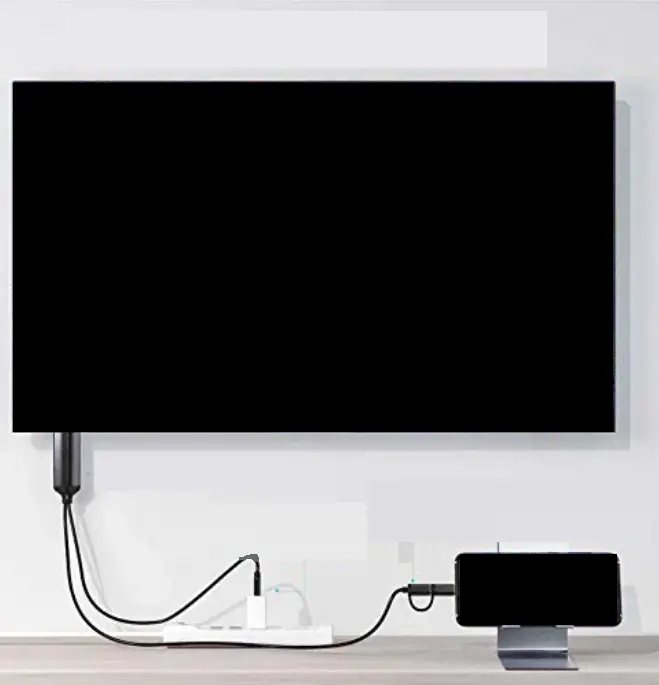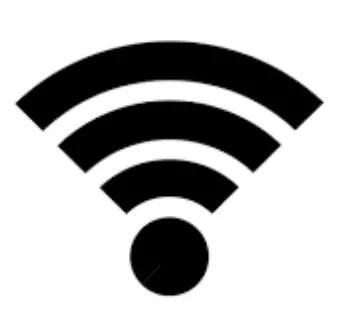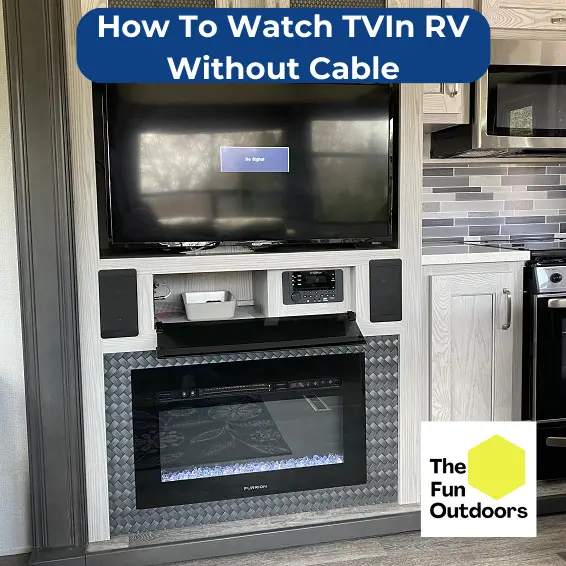Whether you’re a full-time RVer or just taking a weekend trip, rainy days are going to happen, and you’ll want to make sure you have entertainment options when you’re stuck inside your camper. But what if there’s no cable hookup available? There are several ways of how to watch TV in your RV without cable.
The six main ways how to watch TV in an RV without cable are using streaming services, satellite TV, an over-the-air antenna, DVD player, connecting a smartphone to your RV’s TV, or connecting a laptop to your RV’s TV.
We’ll explore the different methods for watching TV in an RV without cable, discuss the pros and cons of each, and provide pro tips for rainy days and limited reception.
Key Takeaways
- There are several ways to watch TV in an RV without cable, including using an antenna and streaming services.
- A reliable internet connection is important for streaming, which can be achieved through a mobile hotspot or satellite internet.
- Consider additional RV entertainment options, such as board games and outdoor activities, for rainy days and limited reception.
6 Ways To Watch TV In RV Without Cable
Watching TV in an RV without cable is easier than you might think. There are several options available, each with its own set of advantages and disadvantages. Here are six ways to watch TV in an RV without cable.
Option 1: Streaming Services

Streaming services such as Netflix, Hulu, and Amazon Prime Video offer a wide selection of TV shows and movies that can be watched on demand. All you need is a reliable internet connection and a device to stream on, such as a smart TV, laptop, or tablet.
Adding a streaming stick such as an Amazon Fire TV stick, Roku stick, or AppleTV are other great ways to add streaming functionality to a “non-smart” RV TV.
Keep in mind that streaming services require a subscription, and you may need to purchase additional equipment such as a streaming device or HDMI cable to connect your device to your RV’s TV.
Option 2: Satellite TV

Satellite TV is a popular option for RVers who want access to a wide range of channels. Companies such as Dish Network and DirecTV offer RV-specific packages that include portable satellite dishes and receivers.
While satellite TV provides a wide range of channels, it can be expensive and may require a long-term contract.
Option 3: Over-The-Air Antenna

An over-the-air antenna is a simple and affordable way to watch TV in an RV without cable. This type of antenna picks up local broadcast channels, including major networks such as ABC, CBS, and NBC.
To use an over-the-air antenna, you’ll need to purchase one that is compatible with your RV and connect it to your TV. Keep in mind that the number of channels you receive may vary depending on your location.
Option 4: Use A DVD Player

If you have a collection of DVDs, a DVD player is a simple and affordable way to watch TV in an RV without cable. Many RVs come equipped with a DVD player, or you can purchase one separately.
The great thing about using a DVD player is that weather doesn’t matter, and it doesn’t require any WiFi connection or antenna reception to work.
Option 5: Connect Your Smartphone To Your RV’s TV

Most smartphones can connect to your RV’s TV using a special smartphone-to-HDMI cable or through wireless casting, which is a type of screen sharing technology that allows you to watch the content from your smartphone on your RV’s TV.
This option provides a convenient way to watch TV on a larger screen, but it does require a reliable internet or cellular connection, and may drain your smartphone’s battery.
Option 6: Connect Your Laptop To Your RV’s TV

If you have a laptop, you can connect it to your RV’s TV using an HDMI cable or a wireless streaming device. This option provides a convenient way to watch TV on a larger screen and offers more flexibility than streaming services or DVD players.
Keep in mind that this option requires a reliable internet connection and may require additional equipment such as a streaming device or HDMI cable.
The great thing with hooking up a laptop to your RV TV is that your laptop may also have a built-in DVD player, or you can play video content that’s saved on your computer, eliminating the need for any type of cellular or WiFi connection.
The Role of Internet Connection

Having a good internet connection is crucial for watching TV in an RV without cable. With access to high-speed internet, you can stream TV from any online platform in your trailer. However, it is important to note that not all RV parks offer reliable Wi-Fi connections, and cellular data can be expensive and limited.
One solution is to invest in a mobile hotspot device that provides a dedicated internet connection for your RV. This device uses cellular data to create a Wi-Fi network, allowing you to connect multiple devices and stream TV without relying on the RV park’s Wi-Fi or using up your phone’s data plan.
See Related: Our Review and Comparison of RV Mobile Hotspot Plans
Another option is to use a satellite internet connection. While more expensive than cellular data or Wi-Fi, satellite internet is available almost anywhere and provides a reliable high-speed connection. Satellite internet can be affected by weather conditions and can have higher latency than other types of internet connections.
In addition to providing access to streaming TV, a good internet connection can also allow you to use a digital antenna to access over-the-air TV channels. Many TV networks now offer live streaming of their channels online, which can be accessed with a good internet connection.
Overall, having a reliable and fast internet connection is essential for watching TV in an RV without cable. Whether you choose to invest in a mobile hotspot device, satellite internet, or rely on the RV park’s Wi-Fi, having a good internet connection can make all the difference in your TV viewing experience on the road.
Considerations for Full-Time RVers
Full-time RVers have unique considerations when it comes to watching TV in their RVs. They spend a lot of time on the road and need to have access to their favorite shows and news channels. Here are some things to consider for full-time RVers:
Internet Connection
Full-time RVers need a reliable internet connection to stream content online. Many RV parks and campsites offer Wi-Fi, but it may not be strong enough to stream video content. It is recommended to have a backup plan, such as a hotspot or a satellite internet connection.
Antenna or Satellite
An antenna or satellite is necessary to access local channels and national networks. Full-time RVers should invest in a high-quality antenna or satellite system to ensure they get the best signal possible. It is also important to research which channels are available in the areas they plan to travel to.
Power Consumption
TVs and other entertainment systems can consume a lot of power, which can be a concern for full-time RVers who rely on battery power. It is recommended to use LED TVs, which consume less power than traditional TVs. Full-time RVers should also invest in a solar panel system to generate additional power.
Entertainment Options
Full-time RVers should have a variety of entertainment options available to them. This includes streaming services, DVDs, and books. It is important to have a backup plan in case of poor weather or other circumstances that prevent access to TV or internet.
RV Park Amenities
Full-time RVers should research RV parks and campgrounds to ensure they have the amenities they need. This includes access to cable TV, Wi-Fi, and a strong cell phone signal. It is also important to research the location and proximity to local attractions and services.
Tips for Rainy Days and Limited Reception

When the weather is bad and you are stuck inside your RV, watching TV can be a great way to pass the time. However, if you are in an area with limited reception, it can be frustrating to try and find something to watch. Here are some tips for making the most of your TV watching experience in these situations:
- Invest in a digital TV antenna: A digital TV antenna can help you access local channels and network television for free. This is a popular option for RVers, as it is budget-friendly and straightforward.
- Use a satellite antenna: If you are willing to spend a bit more money, a satellite antenna can provide you with access to a wider range of channels. This is a good option if you plan to spend a lot of time in areas with limited reception.
- Download shows and movies: If you have limited reception or no access to TV channels, consider downloading shows and movies before you hit the road. This way, you can watch them even if you don’t have an internet connection.
- Bring DVDs or Blu-rays: If you have a DVD or Blu-ray player in your RV, bring along some of your favorite movies or TV shows. This is a great way to pass the time on rainy days, and you don’t need an internet connection to use them.
Consider a streaming service: If you have access to the internet, consider signing up for a streaming service like Netflix, Hulu, or Amazon Prime. These services provide access to a wide range of TV shows and movies, and you can watch them on your TV or mobile device.


